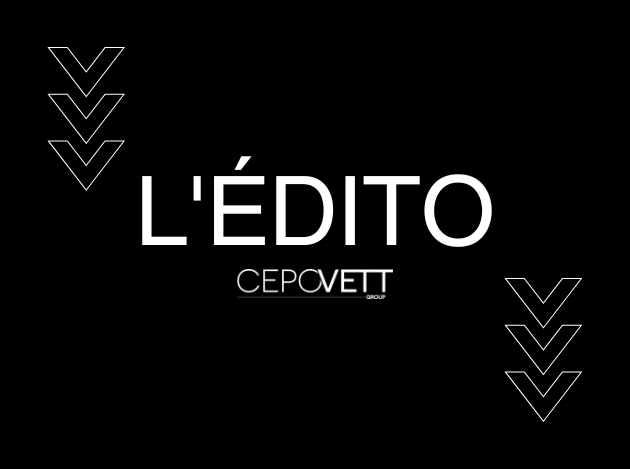#PositiveImpact
24 May 2023
Covid-19 information
26 May 2023Each era has its own fight
Each era has its own fight
The ecological emergency has given rise to a new generational struggle: that of man to protect the planet and living beings from himself, a necessary adaptation to a modified environment is required. This is undoubtedly the most difficult challenge that humanity will have to face in order to avoid the mass extinction of life on earth.
Repeated fires, sudden floods, heat waves and prolonged droughts: the summer of 2022 will have been very hot and deadly in terms of climate. The predicted climate disruption is increasing more strongly and brutally than expected, bringing us face to face with our environmental responsibilities, which for too long have been relegated to second place behind economic concerns. We know, from now on, that the process is irremediably engaged, that the trend cannot be reversed and that we will have to adapt to this new climatic situation.
The climate, the new challenge of humanity.
The history of mankind has been built on battles. The end of slavery, from Egypt to the colonies, the struggle to defend our freedoms from the fall of the monarchy to the declaration of human rights, the wars of territory and religion, the great famines and epidemics: each century brings its share of conflicts and challenges to ensure the survival of a people, a society and humanity. The recent health crisis has added to the long list of pandemics that have befallen mankind since his existence on earth. And if, for a long time, we have put all our energy and our lives into pushing back enemy peoples, protecting our territories or our civilizations, today it is for the planet that we will have to fight, in an ultimate and inevitable battle for the survival of living beings and more particularly of our species. Repairing decades of pollution and destruction linked to our economic and industrial activities, adapting our lifestyles to the new environmental requirements, learning to consume, work, live and travel differently: this is the unprecedented and historic challenge that mankind must now face. It is probably the most difficult challenge we have ever had to face.
Preserve and safeguard the living
And for good reason: if humans represent 0.01% of living creatures, they are responsible for 83% of animal losses since the beginning of civilization. It is therefore up to us to act to save the living and preserve the biodiversity that surrounds us. As Malin Rivers, Director of Conservation at the NGO Botanic Gardens Conservation International, reminded us this week, "We will not solve the climate crisis without solving the biodiversity crisis" because biodiversity provides essential ecological and economic functions.
If 2022 was a year filled with uncertainties, the year 2023 will bring the hopes of a renewal of all generations wishing to rebuild a more sustainable and fairer world. The question of CSR is no longer being asked, it is being practiced step by step. Responsible companies have gone beyond the stage of diagnosis to activate the levers of evolution and transformation of their business model to become regenerative companies.
From transition to sobriety
In the face of the climate emergency, new scenarios are contradicting received ideas. According to the historian of science Jean-Baptiste Fressoz, not only is the concept of ecological transition illusory, but it is also historically false. Capitalism and innovation are based on the principle of accumulation of energy and raw materials, not substitution. The industrial revolution did not lead to a switch from wood to coal, since coal mines themselves consumed wood, as did the railroads that are used for our transportation. The examples are numerous and unravel the myth of a logic of phases between centuries. It is thus on a model of symbiosis that we must think the new energies and direct the actions. And these are still too weak! The daily gestures of a reasoned energy consumption are to this day the object of recommendations, of incentives and not of regulatory constraints. It is our individual and collective responsibility to do what politics does not impose.
From purchasing power to living power
This is a generational issue, which implies a change of perception and the construction of new narratives around a desirable and accepted sobriety. A vision advocated by the philosopher and astrophysicist Aurélien Barrau, who proposes to replace purchasing power with the power of life, through zoethics. But for the word to be translated into action and for this narrative to be appropriated by the general public, it must be invested by figures who speak to everyone. Artists, influencers, and major sportsmen and women who benefit from wide media coverage have a major role to play in the acceptance of change by all. The recent controversies about the French soccer team's or the big bosses' private jet trips illustrate the duty of these public figures to set an example that is expected by a large part of the population. The construction of a collective narrative will be done through the initiative of exemplary influencers who will open the way to a new future. Each era has its own fight, the time to choose has come!
In 2022, the CEPOVETT group has set three strategic axes that will structure its CSR policy until 2025 and are based on three major issues: air, water and life. Through its ability to adapt to change, CEPOVETT is asserting itself as a regenerative company. Carrying the spirit of the Global Compact and the United Nations Sustainable Development Goals (SDGs), which we actively support, CEPOVETT is committed to continuous progress.
This eighth voluntary CSR report illustrates our recent accomplishments and our commitment to work, produce, buy, recycle and educate differently.

